
Services
We would like to give you peace of mind knowing that your love ones are well taken care of. Here are some of the services we offer.
Your Team
We are proud to work with some of the best medical professionals in the country. Our team will provide you with the quality, compassionate care you need.
Contact Us
We want to ensure you have all of the information you need. To learn more about the services we offer, our hours and location, please feel free to contact us.
Renaissance Gastroenterology
Renaissance Gastroenterology, leaders in the field of Gastroenterology with a combined experience of over 100 years in treatment of digestive disease, is dedicated to meeting and exceeding the healthcare needs of residents in South Texas.
Gastroenterology is the medical specialty devoted to the study, diagnosis and treatment of disorders of the digestive system. These disorders may affect the esophagus, stomach, small intestine, large intestine (colon), rectum, liver, gallbladder, or pancreas. Gastroenterology is popularly known as "Gi" which stands for gastrointestinal.
Doctors Hospital at Renaissance (DHR) was awarded a National Certificate of Recognition by the American Society for Gastrointestinal Endoscopy (ASGE) for quality services and patient safety in 2010 and remains current with this recognition. The ASGE Unit Recognition Program is designed to honor facilities that excel in following the ASGE guidelines for quality care. Doctors Hospital at Renaissance is one of only 450 facilities recognized across the nation this year.
It is the mission of Renaissance Gastroenterology to deliver the highest quality of compassionate care to patients in the Rio Grande Valley who have digestive health problems or concerns.
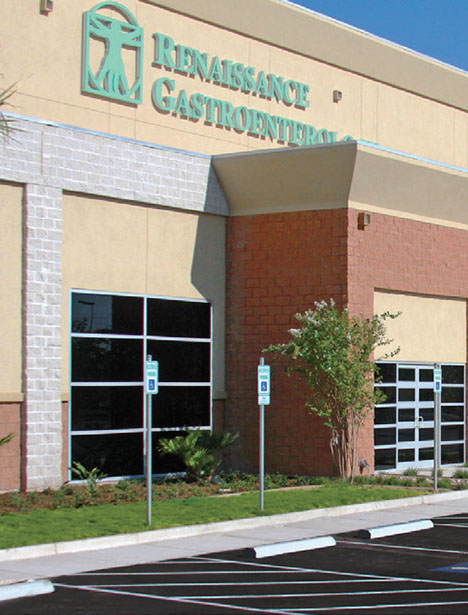
About Us
Renaissance Gastroenterology services include treatment for:
- Abdominal Pain
- Constipation
- Hepatitis
- Gastritis
- Pancreatic Disease
- Colorectal Cancer
- Rectal Bleeding
- Irritable Bowel Syndrome
- Diverticulitis
- Colitis
- GERD: Gastroesophageal Reflux Disease
- Peptic Ulcers
- Therapeutic ERCP
- Endoscopic Ultrasonography (EUS)
- Capsule Endoscopy
The Endoscopy Unit at Doctors Hospital at Renaissance is dedicated to the performance of gastroscopies, colonoscopies as well as other gastrointestinal diagnostic tests and endoscopic procedures. Our facility features prompt and efficient care in a comfortable setting. Our staff includes a specially trained team of registered nurses, endoscopy technicians, and additional health care providers. The Endoscopy lab at Doctors Hospital at Renaissance has been recognized for quality and safety by the ASGE since 2009.
Outpatients are contacted via telephone the day before their procedure, so we can answer any questions they may have. Upon arrival, various members of our health care team, including clinical nurses and physicians, individually assess all patients.
Once the procedure is over, patients are continuously monitored until discharge criteria is met. We provide specific discharge instructions including activity, diet and follow up care. A phone call is also made the following day by our clinical nurses to assess how the patient is feeling and if there are any additional needs or concerns that we may help with.
Other Conditions Treated
- Achalasia
- Arteriovenous Malformation
- Barrett’s Disease
- Colon cancer screening
- Common Bile Duct Stones & Strictures
- Crohn’s Disease
- Difficulty Swallowing
- Digestive and Gastrointestinal Diseases
- Diverticulitis
- Duodenitis
- Esophageal Strictures
- Esophagitis
- Gastric Ulcers
- Hemorrhoids
At Renaissance Gastroenterology all physicians are board certified and combined have over 100 years of experience in clinic practice including endoscopic procedures. Our team of physicians is devoted to providing high quality care in the clinic and when performing procedures; therefore, each is an active member of the American Society for Gastrointestinal Endoscopy (ASGE). Physician members of the ASGE have highly specialized training in endoscopic procedures of the digestive system. The ASGE is the only medical society that requires documentation of specific training in GI endoscopic procedures. To complement the specialized skill and training of the Renaissance Gastroenterology team, our physicians are committed to performing all procedures in an endoscopy lab that that is recognized for quality and safety.
Services
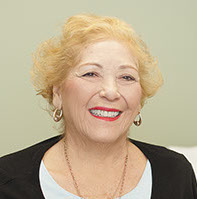
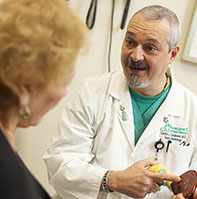

Carlos J. Cardenas, M.D.
Staying strong in heart and in mind wins half the battle.
As an individual with a history of digestive health issues, I was concerned when I began having severe stomach pain. I previously received care from Renaissance Gastroenterology and knew there was no better medical office to seek treatment from to get answers about this new pain.
Due to the immense amount of pain I was in, I took their first available appointment- on a Friday morning. I was evaluated promptly, they ran tests, and gave me some medication to treat a severe stomach infection. My physician was going out of town for the weekend, but assured me that the nurse would check-in for the next few days to monitor my condition. The first thing I thought was “yeah, sure. They always say that.” Later that afternoon I did receive a call from a nurse. She asked how I was feeling, and gave me her number just in case pain returned or I had any questions. I received three calls from her over the weekend. Luckily, I did not have any complications, but it was incredibly reassuring to know they are really looking out for their patients.
"They make you feel at home, they make you feel important; they make you feel like a person."
It is common that when you go to the doctor’s office for a medical exam, lab work, or even just a follow-up, they place you in an examination room where you wait for what feels like hours. There have been times where I stepped out of the room just to make sure they hadn’t forgotten I was there. When I came to Renaissance Gastroenterology for my appointment that was not the case at all, I was very impressed. The physicians and staff at Renaissance Gastroenterology have created a warm and supportive environment. They make you feel at home, they make you feel important; they make you feel like a person. To some doctors, patients are just another number. When I come here, I am always their number one priority.
-Nena Alavrez
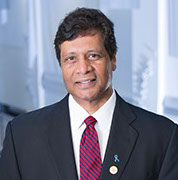
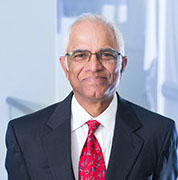
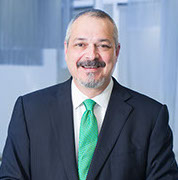

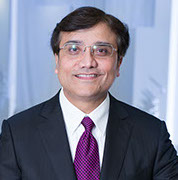
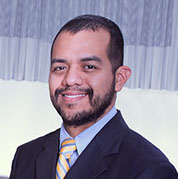
S. Murthy Badiga, M.D., FACG
Dr. Badiga earned his medical degree from Guntur Medical College in India in 1981. He began his training in the U.S. in 1985 after a 3 year postgraduate experience in Jamaica, West Indies. He was an intern in Radiology at New York Medical College in Valhalla, NY in 1985 and a research associate in gastroenterology at Our Lady of Mercy Medical Center, Bronx, NY in 1986. He completed his residency training in internal medicine (1987-1990) and fellowship training in gastroenterology and clinical nutrition (1990-1993) at Our Lady of Mercy Medical Center/ NY Medical College. He then went on to complete a fellowship in Advanced Therapeutic ERCP at the University of Amsterdam in the Netherlands. Dr. Badiga is board certified in Internal Medicine and Gastroenterology. He has authored or coauthored several publications including a book chapter on pancreatitis. He is a Fellow of the American College of Gastroenterology and American Gastroenterological Association and member of the American Society for Gastrontestinal Endoscopy. Dr. Badiga has received many accolades in his 21 years of practice in the Rio Grande Valley and served in various leadership positions at Doctors Hospital at Renaissance Health System, including chief of endoscopy, chief of medicine, chief of staff and member of the board of managers. Dr. Badiga has extensive interventional gastroenterology endoscopy experience and he is passionate about offering his patients state-of-the-art minimally invasive endoscopic alternatives to surgery. Dr. Badiga is an avid reader and writer. He enjoys traveling with his family, studying current affairs, politics, and economy.
S. Behara, M.D.
Dr. Behara was born and primarily educated in India where he completed medical school and an internship in 1973. He received two Gold Medals from Andhra Medical College for being first in his class. He then traveled to the United States to complete his post-graduate training. He completed his internship, residency, and fellowship in the state of Illinois. Dr. Behara joined the U.S. Air Force in 1978, serving for four years and was honorably discharged. In 1978 he became board certified in Internal Medicine and was board certified in Gastroenterology in 1981. He co-founded South Texas Gastroenterology in McAllen, Texas in 1992. He was also one of the co-founders of Doctors Hospital at Renaissance. Dr. Behara has over 35 years of experience in Gastroenterology. He is a member of the American Gastroenterological Association (AGA). During his free time he enjoys golfing and spending time with his family, especially his grandchildren. He also has a passion for music.
Carlos J. Cardenas, M.D.
Dr. Carlos J. Cardenas has over 20 years of experience in the field of medicine and healthcare management. Raised in McAllen, TX, Cardenas earned his Bachelor of Arts degree in Biology from Austin College in Sherman, TX. Dr. Cardenas graduated from medical school at the University of Texas Medical Branch in Galveston, TX and began his career as a resident at Scott and White Memorial Hospital in Temple, TX in 1985. Cardenas eventually made his way back to the Rio Grande Valley and co-founded South Texas Gastroenterology Associates in 1992. Dr. Cardenas currently practices at Renaissance Gastroenterology, where he provides consultative services and performs endoscopy. Dr. Cardenas was one of the original physicians who formed Doctors Hospital at Renaissance, where he served as the interim Chief Executive Officer from January 1 - December 31, 2013. As he continues serving as the Chairman of the Board, Cardenas provides leadership while addressing key challenges and establishing policies of corporate governance, corporate social responsibility, and corporate ethics. In addition to his expansive role at Doctors Hospital at Renaissance, Dr. Cardenas served as President of the Hidalgo-Starr Medical Society in 2001 and was elected to the Board of Trustees of the Texas Medical Association in 2005. In 2013, Dr. Cardenas was elected Chairman of the Board for the Texas Medical Association. He was awarded "Man of the Year" by the McAllen Chamber of Commerce in 2013. He and his wife, Linda Christine, have 3 children Adam, Simon, and Daniel.
Ingrid Chacon, M.D., FACG
Dr. Chacon graduated from the University of Costa Rica School of Medicine in 1996. She completed her internship and residency in internal medicine at Metropolitan Hospital Center, affiliated with New York Medical College, where she was Chief of Medical Resident from 1998-2002. In 2005, at the University of Arkansas for Medical Sciences in Little Rock, Arkansas, she completed her Gastroenterology Fellowship and became board certified in Gastroenterology. She was elected Fellow of the American College of Gastroenterologists in 2014. Dr. Chacon also holds a certification as a Diplomate of the American Board of Obesity Medicine. She has received numerous awards and honors throughout her medical training and has been published. She is also a member of several medical societies, like the American Society for Gastrointestinal Endoscopy. She has been practicing Gastroenterology in McAllen since 2006. During her free time she enjoys spending time with her family.
Asif Zamir, M.D., FACG
Dr. Zamir completed medical school in Karachi, Pakistan in 1990. He relocated to New York for post-graduate training where he completed a residency and fellowship at Maimonides Medical Center in 1997. He received many accolades throughout his undergrad and post-graduate education and he is double board certified in internal medicine and gastroenterology. Dr. Zamir has been involved in research, has several publications and is a member of numerous medical societies, including the American Society for Gastrointestinal Endoscopy. In 1998, Dr. Zamir relocated to McAllen and began private practice. During these past 17 years practicing gastroenterology, Dr. Zamir has participated as an associate professor at the University of Texas Health Science Center (UTHSC), San Antonio, and has delivered multiple lectures for the University of Texas Health Science Center Regional Academic Health Center residents. Dr. Zamir is a member of the Board of Governors at Doctors Hospital at Renaissance. He has special interest and experience in interventional and advanced endoscopic procedures, especially ERCP's. Dr. Zamir has achieved the highest adenoma detection rate (detection rate of pre-cancerous polyps) for the past several years. He enjoys spending time with his family, exercise, fitness, and racquetball.
Henry Herrera, M.D.
Dr. Herrera was raised in McAllen, TX. He is a first generation college graduate, completing his undergraduate education from the University of Texas Pan American in 2006 with magna cum laude distinction. He graduated from the University of Texas Southwestern Medical School in 2010. He attended the University of Texas Southwestern Residency program, where he focused his research interest on gastroenterology and presented over 15 posters in national gastroenterology conferences such as American College of Gastroenterology, Digestive Disease Week, and Crohns and Colitis Foundation of America. He completed his residency in Internal Medicine from the University of Texas Southwestern residency program and became board certified in 2013. He then moved to Temple, TX and attended gastroenterology fellowship at Scott and White Memorial Hospital where he published two papers on inflammatory bowel disease and was trained in advanced endoscopy, including endoscopic ultrasound (EUS) and endoscopic retrograde cholangio pancreatography (ERCP). He graduated from Scott and White Memorial Hospital in 2016. Dr. Herrera is a member of the American Society for Gastrointestinal Endoscopy (ASGE) and the Texas Society for Gastroenterology and Endoscopy (TSGE). Dr. Herrera enjoys sports including basketball and football. He enjoys fishing and spending time at South Padre Island with his wife and three daughters.
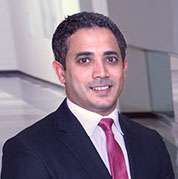
Ramakrishna “Rama” Behara, D.O.
Dr. Behara received his Bachelor of Science degree from the University of Texas at Austin, Austin, TX and his Master of Science degree from the University of North Texas Health Science Center, Fort Worth, TX. He completed his Doctor of Osteopathic Medicine at Texas College of Osteopathic Medicine, Forth Worth, TX and continued his residency in Internal Medicine at Rush University Medical Center in Chicago, IL where he completed a fellowship in Gastroenterology and Hepatology. Dr. Behara specializes in providing patients with the best digestive health and endoscopy treatment options available. His specific strengths include video capsule endoscopy, hemorrhoidal banding, and functional bowel disorders.
Your Team
Patient Testimonial
What is colon cancer?
Colon, or colorectal, cancer is cancer that starts in the large intestine (colon) or the rectum (end of the colon). According to the American Cancer Society, colorectal cancer is one of the leading causes of cancer-related deaths in the United States. However, early diagnosis often leads to a complete cure. Our goal at Doctors Hospital at Renaissance is to empower our patients with the latest technological procedures to help detect and prevent colon cancer.
There is no single cause of colon cancer. Nearly all colon cancers begin as noncancerous (benign) polyps, which slowly develop into cancer.
You have a higher risk for colon cancer if you:
- Are older than 50
- Are African American or of eastern European descent
- Eat a diet high in red or processed meats
- Have cancer elsewhere in the body
- Have colorectal polyps
- Have inflammatory bowel disease
- Have a family history of colon cancer
- Have a personal history of breast cancer
Certain genetic syndromes also increase the risk of developing colon cancer. Two of the most common are:
- Familial adenomatous polyposis (FAP)
- Hereditary nonpolyposis colorectal cancer (HNPCC), also known as Lynch syndrome
What you eat may play a role in your risk of colon cancer. Colon cancer may be associated with a high-fat low-fiber diet and red meat.
What is a colonoscopy screening?
All adults should undergo colon cancer screening beginning at age 50 or earlier, depending upon the risk of developing colorectal cancer. Several tests are currently available, each of which has advantages and disadvantages. The optimal screening test is a screening colonoscopy. A screening colonoscopy is a commonly ordered health screening examination of the colon. The patient is given a mild sedative drug before the procedure. During a colonoscopy, a thin lighted tube is inserted through the rectum allowing the gastroenterologist a full view of the lining of the rectum and the entire colon. If polyps are discovered, they may be removed as part of the procedure.
My doctor is treating me for GERD? Will I need an upper GI endoscopy?
GERD, gastroesophageal reflux disease, is caused when stomach acid travels back up into the esophagus. The symptoms of GERD are frequent heartburn, difficulty swallowing, regurgitation of food and fluids, chest pain and asthma. Normally, there is a valve (LES) at the lower portion of your esophagus that opens when you swallow but remains closed at all other times. This valve usually prevents reflux, and can malfunction causing reflux. GERD may be controlled with lifestyle and diet changes. Not all heartburn is GERD, but longstanding heartburn, especially if uncontrolled with over the counter medications may require evaluation by gastroenterologist.
What kind of preparation is necessary for an endoscopic procedure?
The preparation for an endoscopic procedure varies depending on your health history and the procedure planned. For endoscopic examinations of the upper digestive tract, food and fluids are withheld for several hours before the procedure. For endoscopic examinations of the colon, a special diet needs to be followed for several days in addition to the need for a thorough bowel prep to cleanse your colon prior to the procedure. There may be variations to these preparations, depending on your condition. It is very important to follow your instructions carefully, as an incomplete preparation may require an additional appointment. Please consult your physician’s office if you have any questions about your preparation.
What is peptic ulcer disease and what causes it?
Ulcers are breaks in the protective mucosal lining of the digestive tract that can vary in size (both in diameter and depth) and location. Ulcers are the result of the breakdown of the mucosa, which may occur as a result of excessive gastric acid secretion. One common cause of peptic ulcer disease is infection with Helicobacter pylori bacteria, a common bacteria that lives in the digestive tract. Non-steroidal anti-inflammatory drugs (NSAIDs) such as aspirin and ibuprofen can also contribute to mucosal injury of the upper digestive tract and lead to peptic ulcer disease
What are the symptoms of pancreatitis?
Acute pancreatitis is an inflammation of the pancreas that occurs suddenly. It differs from chronic pancreatitis in that there is a discrete episode, which may be classified as mild, moderate or severe, depending on the amount of damage and organ dysfunction caused by the episode. Abdominal pain, nausea and vomiting are the most frequent symptoms of acute pancreatitis. Fever, jaundice, hypotension and tachycardia are not uncommon. Peritonitis and shock with confusion or coma may occur.
Frequently Asked Questions
We'll be here for you when you need us
We hope you found all of the information that you needed. If you have any questions or if you would like to make an appointment, please call us and we will schedule one for you at your immediate convenience.
Edinburg Location
5520 Leonardo Da Vinci, Suite 100, Edinburg, TX 78539
(956) 362-ENDO (3636)
Open Monday-Friday: 8:00 AM – 5:00 PM
Weslaco Location
902 S. Airport Drive, Suite 6, Weslaco, TX 78596
(956) 362-ENDO (3636)
Open Wednesday: 8:00 AM – 5:00 PM
Contact Us
